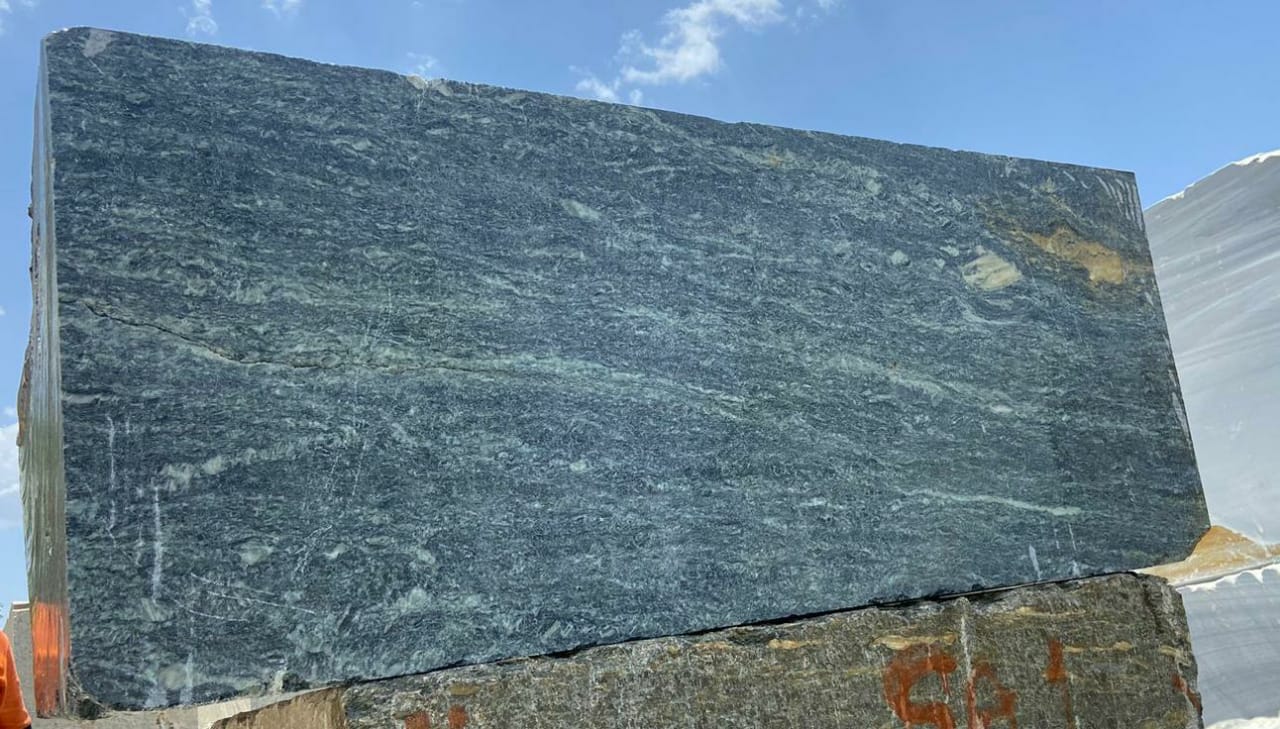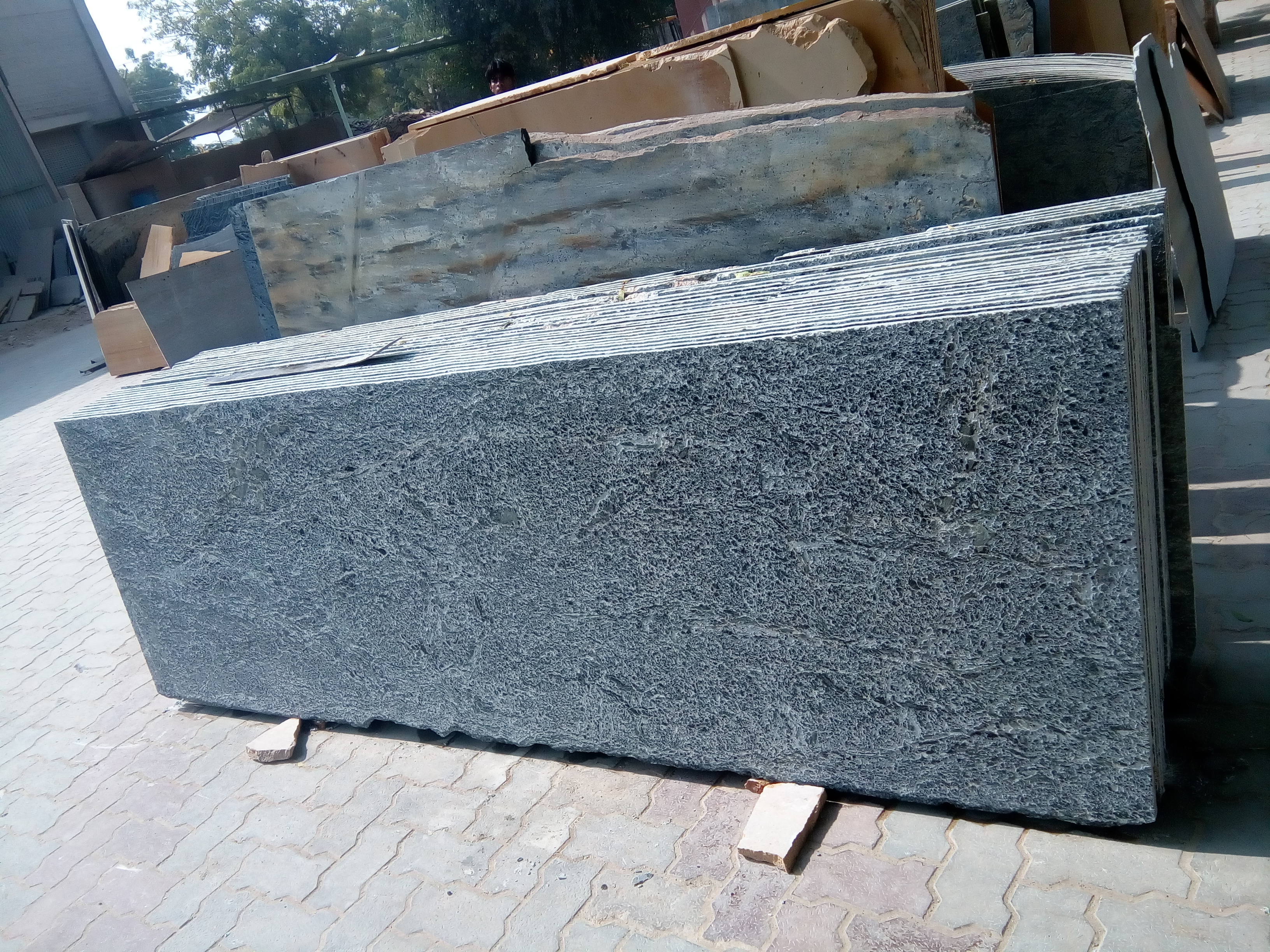1. Indian Soapstone Origins and Properties
Indian soapstone, also known as steatite or talc stone, is a metamorphic
rock generated by the alteration of magnesium-rich minerals. It is
abundant in many Indian states, including Rajasthan, Madhya Pradesh and Uttarakhand. The
peculiar composition of Indian soapstone, mostly talc, provides a smooth
and silky feel to the stone, making it particularly attractive for
carving and crafts.
Soapstone is a popular material for countertops, especially in homes that prioritize a rustic or natural aesthetic.
It’s durable and resistant to heat, but it can develop a patina over time.The heat resistance of soapstone makes it
perfect for wood stoves, hearths, and firebacks. Artists use soapstone for carving sculptures because of its softness and ease of manipulation.
Because it's easy to carve, soapstone is also used to make wash basin sink articless.
Polished soapstone vases and bowls add elegance and sophistication to interiors.
2. Artisanal Craftsmanship
Handcrafted Soap Bars: Indian soapstone serves as a canvas for craftsmen
who produce wonderful handcrafted soap bars. Skilled carvers skillfully
cut the soapstone, moulding it into stunning forms and patterns. These
soap bars often include detailed engravings, relief work, or embossed
designs that reflect the artist's creative ability and attention to
detail.
The natural colours of the soapstone, which range from milky
white to different degrees of grey, provide a visually pleasing
background for the soap creations. Soapstone is relatively low-maintenance compared to other
natural stones. While it’s not as prone to staining as granite or marble, it can scratch or dull over time.
Historically, soapstone was used for carving tools, cooking vessels, and even ceremonial objects by many cultures.
3. Unique Characteristics of Indian Soapstones
soapstone! It’s a metamorphic rock that’s primarily composed of talc, chlorite,
pyroxenes, micas, and amphiboles. The soft and smooth texture of soapstone gives it its name,
and it has been used for centuries for various purposes Furthermore, the
natural colours and patterns of the soapstone lend aesthetic appeal,
making a basic soap bar into a work of art.
Soapstone is quite soft, with a Mohs hardness of 1–3, meaning it's easy to carve and shape. Soapstone is heat-resistant, which makes it ideal for stoves, countertops, and fireplaces.
The stone has a smooth, soapy feel to the touch, which is why it’s called soapstone. Soapstone comes in a range of colors, from gray to green to brown, and sometimes even with blue or purple hues.
Designs inspired by Indian culture, such as floral patterns, mandalas, and religious symbols, are commonly seen in soapstone decor.
4. Aesthetic and Decorative Value
Indian artisans often use soapstone to create intricate carvings, idols, and decorative items due to its softness and ease of carving.
Soapstone is used in traditional Indian rituals to create incense holders, lamps, and small altars.
To maintain soapstone's appearance, it can be treated with mineral oil, which enhances its natural color and provides a uniform finish.
Although durable, it can develop scratches over time, often be sanded out or minimized with oiling.
Indian soapstone is highly valued for its decorative appeal due to its unique texture, smooth finish, and ease of carving, which allows for intricate designs.
Soapstone is popular among Indian artisans for creating detailed figurines of deities, animals, and mythological motifs. These carvings often showcase the artist's skill in intricate detailing.
5. Sustainability and Eco-Friendliness
Indian soapstone soaps adhere to eco-friendly standards. Soapstone is a natural and renewable material. Handcrafted soaps are often prepared with ecologically safe components, avoiding hazardous chemicals and artificial additions. Furthermore, the handcrafted aspect of soapstone soap making frequently entails minimum packaging, decreasing waste and supporting sustainable practices.
Conclusion:
Indian soapstone adds its innate beauty and adaptability to the realm of handmade soaps, producing a one-of-a-kind and delightful bathing experience. Indian soapstone soaps highlight the creativity and natural beauty of this extraordinary material, from the expertly carved motifs to the soft and nourishing characteristics. Using these handmade soaps enables you to go on a sensory trip while also benefitting from the skin-loving characteristics they provide. With its ornamental appeal and long-lasting qualities, Indian soapstone soaps genuinely symbolise the creative blending of nature, workmanship, and personal care.





